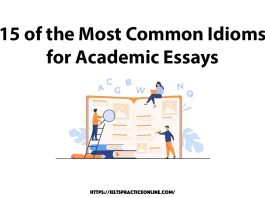Lesson 3: Childhood
- adolescence – the period of time in a person’s life when they are developing into an adult
- adulthood – the part of someone’s life when they are an adult
- bond – a close connection joining two or more people
- brotherhood – friendship and loyalty
- character – the particular combination of qualities in a person or place that makes them different from others
- childhood – the time when someone is a child
- conflict – an active disagreement, as between opposing opinions or needs
- fatherhood – the state or time of being a father
- instinct – the way people or animals naturally react or behave, without having to think or learn about it
- interaction – an occasion when two or more people or things communicate with or react to each other
- motherhood – the state or time of being a mother
- nature – the type or main characteristic of something
- resemblance – a way in which two or more things are alike
- rivalry – a situation in which people, businesses, etc. compete with each other for the same thing
- sibling – a brother or sister
- temperament – a person’s or animal’s nature, especially as it permanently affects their behaviour
- ties – the friendly feelings that people have for other people, or special connections with places
- upbringing – the way in which someone is treated and trained as a child
- extended family – a family unit that includes grandmothers, grandfathers, aunts, and uncles, etc. in addition to parents and children
- family gathering – when family members meeting together
- immediate family – closest relations, such as your parents, children, husband, or wife
- maternal instinct – the natural tendency that a mother has to behave or react in a particular way around her child or children
- sibling rivalry – competition and arguments among brothers and sisters
- stable upbringing – having a safe and secure family in your childhood
- striking resemblance – impressive similarity
- close-knit – involving groups of people in which everyone supports each other
- maternal – behaving or feeling as a mother does toward her child
- parental – relating to parents or to being a parent
- rewarding – satisfying or beneficial
- accommodate – to provide someone with a room or place to sleep, live, or sit
- adopt – to take somebody else’s child into your family and become its legal parent(s)
- break down – of a relationship, agreement, or process) cease to continue; collapse
- endure – last; keep on; undergo; bear; stand
- establish – to start having a relationship with, or communicating with another person, company, country, or organization
- have something in common – to share interests, experiences, or other characteristics with someone or something
- inherit – derive (a quality, characteristic, or predisposition) genetically from one’s parents or ancestors
- chaotic – disorganized
- nurture – to feed and care for a child, or to help someone or something develop by encouraging that person or thing
- alike – similar to each other
- play a role – to be involved in something, especially in a way that is important
- relate to somebody – to understand someone and be able to have a friendly relationship with them
- paddling pool – a pool that is not deep that small children can play in
- sophisticated – (1) Having a thorough knowledge of the ways of society. (2) Highly complex or developed.
- tone – the general character or attitude of a person, situation, etc.
- competency – an important skill that is needed to do a job
- coordinate – to make various, separate things work together
- recruitment – the process of employing new people to work for a company or organization
- hand down something – to give something to a younger member of your family when you no longer need it, or to arrange for someone younger to get it after you have died
- enrol – officially register as a member of an institution or a student on a course
Some questions asked in previous IELTS Writing Paper that you would be
able to write with the help of the vocabulary in this lesson:
- Things like puzzles, board games and pictures can contribute to a child’s development.
What would you give a child to help him/her develop and why?
Give details and examples in your explanation. - Some people believe that children should do organised activities in their free time while others believe that children should be free to do what they want to do in their free time.
Which viewpoint do you agree with?
Use specific reasons and examples to support your answer. Find the sample answer to this question here. - Some people think that children should be homeschooled when they are very young while others think it is better for them to attend a
kindergarten.
Which do you think is better?
Use specific reasons and examples to support your answer. - Childcare has always been of primary concern and importance.
Do you think that courses designed to help mothers are necessary or can they acquire the essential knowledge through personal experience?
Use specific reasons and examples to support your opinion.
